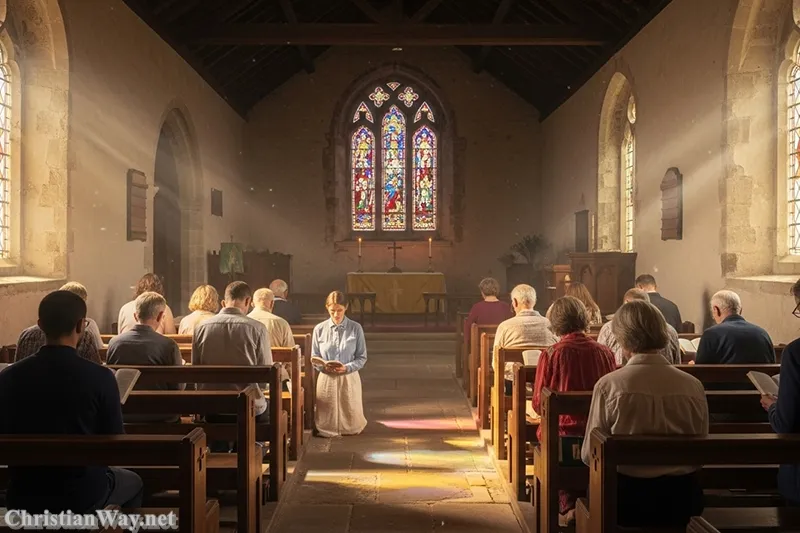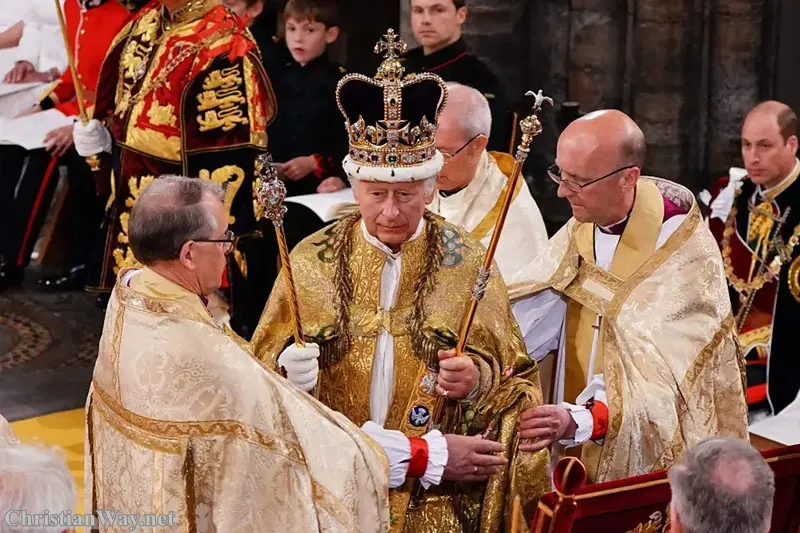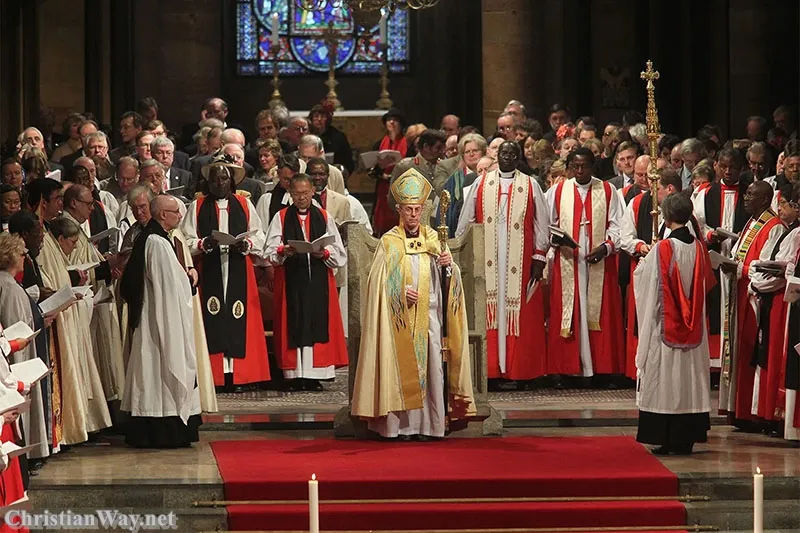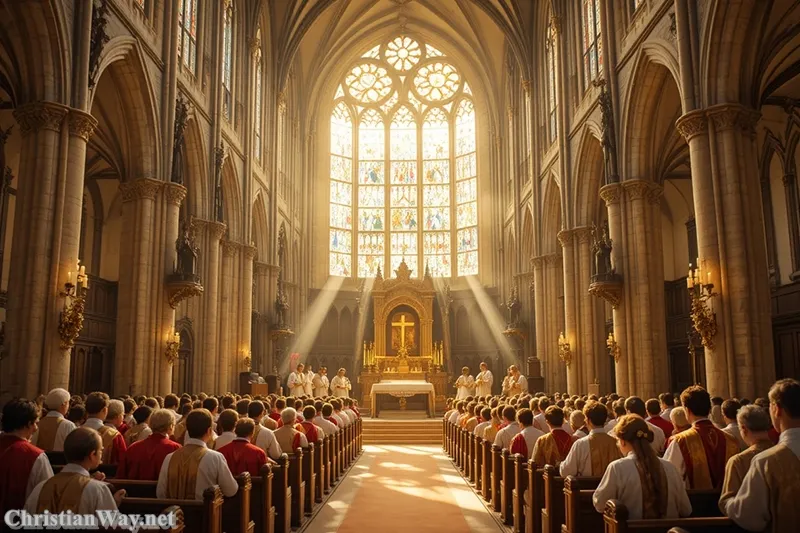Dear friends in Christ,
Every Christian tradition carries a unique rhythm of faith — a way of hearing the Word of God and responding in prayer. For Anglicans, this rhythm beats through two great streams that have nourished the Church for centuries: the Holy Bible and the Book of Common Prayer. Together, they shape the mind, heart, and worship of the Anglican world, forming a people grounded in Scripture and united in prayer.
To understand Anglican Christianity is to enter this beautiful interplay of Word and Worship, of Scripture proclaimed and prayer shared, of ancient faith expressed in living language. These two treasures — the Bible and the Prayer Book — do not stand apart; rather, they breathe together, as Scripture becomes prayer, and prayer becomes the lived expression of Scripture.

Let us reflect, then, on how these sacred gifts have shaped the Anglican soul and continue to guide millions of believers today in faith, reverence, and unity.
The Centrality of Scripture in Anglican Faith
From the earliest days of the English Reformation, the Bible stood at the heart of Anglican identity. When Archbishop Thomas Cranmer and others translated the Scriptures into English, they did not merely offer a new book; they offered the living Word of God in the language of the people.
The Anglican understanding of the Bible is not simply intellectual but deeply spiritual. Scripture is the ultimate authority in matters of faith, as affirmed in the Thirty-Nine Articles of Religion:
“Holy Scripture containeth all things necessary to salvation.” — Article VI
This principle affirms that everything essential for our salvation — for knowing and loving God — is found within the sacred pages of Scripture. Yet Anglicans do not read the Bible in isolation. It is always read within the community of the Church, illumined by tradition, reason, and the guidance of the Holy Spirit.
The Bible as Living Word
For Anglicans, the Bible is not a historical artifact but a living conversation between God and His people. It is proclaimed in every Eucharist, read daily in homes and churches, and sung through psalms and hymns that carry its spirit into the rhythm of daily life.
The lectionary system, rooted in the early Church and expanded through the Book of Common Prayer, ensures that the whole of Scripture — the Law, the Prophets, the Gospels, and the Epistles — becomes the living diet of the faithful.
“Your word is a lamp to my feet and a light to my path.” — Psalm 119:105
This verse captures the Anglican conviction: Scripture is both guide and companion, leading the believer through joy and sorrow alike.
Scripture in the Life of Worship
Unlike some Christian traditions that emphasize private interpretation alone, Anglicanism binds Scripture to communal worship. The public reading of Scripture is an act of faith and fellowship. Every Sunday, across the world, Anglicans hear the same Gospel proclaimed, the same psalms sung, and the same prayers lifted.
This unity is not uniformity; it is the shared heartbeat of a Church that gathers around the Word. The preacher’s task is not to impose novelty but to open hearts to the eternal truth that Scripture reveals — a truth always new because the Spirit continues to speak.
The Book of Common Prayer: Scripture in the Language of Prayer
If the Bible is the heart of Anglican belief, then the Book of Common Prayer (BCP) is the voice through which that heart speaks. Born in the 16th century under the guidance of Archbishop Cranmer, it remains one of the most enduring and beloved texts in the English language.
The Prayer Book was revolutionary in its simplicity and accessibility. It gathered the liturgies of the medieval Church, translated them into English, and offered a single volume through which all the faithful — clergy and laity alike — could pray together.
Its name itself reveals its spirit: Common Prayer — not in the sense of ordinary, but shared. It gave the English-speaking world a common rhythm of worship, uniting believers across parishes, nations, and centuries.
The Language of Holiness
The cadences of the Prayer Book have shaped the soul of English-speaking Christianity. Phrases like “Dearly beloved,” “We have erred and strayed from thy ways like lost sheep,” and “Give us this day our daily bread” have entered not just the Church but the cultural memory of generations.
These words endure because they capture the poetry of holiness — the marriage of reverence and intimacy. The Prayer Book speaks to God with awe yet draws the worshipper close with tenderness. It is Scripture turned into song, theology turned into devotion.
The Book of Common Prayer as a Teacher of Faith
The BCP is not only a manual for worship; it is a teacher of the faith. Through its prayers, collects, and readings, it gently instructs the believer in the great mysteries of Christian doctrine.
Every liturgy — from Holy Communion to Morning and Evening Prayer, from baptism to burial — carries the truth of Scripture. The rhythm of confession, absolution, thanksgiving, and blessing leads the soul through the whole Gospel journey, from repentance to redemption, from sorrow to joy.
For example, the Collect for Purity, prayed at the beginning of the Eucharist, perfectly captures the spirit of Anglican piety:
“Almighty God, unto whom all hearts are open, all desires known, and from whom no secrets are hid: cleanse the thoughts of our hearts by the inspiration of thy Holy Spirit, that we may perfectly love thee, and worthily magnify thy holy Name; through Christ our Lord. Amen.”
This prayer teaches theology — that God knows all hearts and sanctifies them by His Spirit — while also inviting a personal encounter with divine love.
Scripture and Prayer in Harmony
One of the greatest strengths of Anglican spirituality lies in the harmony between Scripture and prayer. The Prayer Book does not replace the Bible; it weaves the Bible into the very fabric of prayer.
Morning and Evening Prayer include psalms, readings, and canticles drawn almost entirely from Scripture. The Eucharist centers on the Word proclaimed and the Word made flesh. Even the funeral liturgy — solemn and tender — is saturated with biblical hope:
“I am the resurrection and the life, saith the Lord: he that believeth in me, though he were dead, yet shall he live.” — John 11:25
In this harmony, the believer encounters Christ not as a distant idea but as a living presence — in Word read, prayer spoken, and bread broken.
The Rhythm of Daily Prayer
One of the enduring gifts of Anglicanism is the rhythm of daily prayer. Through the Prayer Book’s offices — Morning Prayer (Matins) and Evening Prayer (Evensong) — believers are invited to sanctify each day with Scripture and praise.
This rhythm draws from ancient monastic practice yet is accessible to all. In every age, Anglicans have prayed these offices in churches, homes, and quiet corners of the world. The words remain constant even as the world changes:
“O Lord, open thou our lips.”
“And our mouth shall show forth thy praise.”
In such exchanges, Scripture and prayer meet. God speaks, and the Church answers; the believer listens, and faith is renewed.
The Eucharist: Word and Table United
At the heart of Anglican worship lies the Holy Eucharist, where the Bible and the Prayer Book reach their deepest union. The liturgy begins with Scripture — readings from the Old Testament, the Epistles, and the Gospels — and culminates in the sacramental presence of Christ.
This is no coincidence. The pattern reflects the road to Emmaus (Luke 24:13–35): first, Christ opens the Scriptures to His disciples; then He is known to them in the breaking of bread.
In every Eucharist, Anglicans relive that encounter: the Word proclaimed prepares the heart for the mystery revealed at the altar. The Scriptures speak; the prayers respond; the Sacrament completes the dialogue.
The Unity of the Church Through Common Prayer
The genius of the Book of Common Prayer is its power to unite. Across continents and centuries, Anglicans have prayed the same words — from cathedrals in London to chapels in Africa, from rural parishes to royal weddings.
This unity does not erase diversity; rather, it holds diversity within a shared form of worship. Whether the liturgy is sung in English, Swahili, or Mandarin, the rhythm remains the same: confession, Scripture, intercession, thanksgiving, and blessing.
In a fragmented world, such common prayer becomes a testimony of hope — a visible sign that the Church is one body, bound together by the Word of God and the love of Christ.
Scripture, Tradition, and Reason: The Anglican Way
The Anglican approach to theology is often described as a threefold cord: Scripture, Tradition, and Reason.
- Scripture is the foundation — God’s revealed Word.
- Tradition is the living memory of the Church — the faith handed down through centuries.
- Reason is the God-given gift of discernment — the light of the mind guided by the Spirit.
The Book of Common Prayer embodies this balance. It is steeped in Scripture, enriched by ancient tradition, and crafted with profound theological reason. Through it, the Anglican Church has sought to live faithfully in every age, speaking eternal truths in contemporary language.
The Bible and the Prayer Book in the Modern World
In our own time, when many voices compete for attention and silence is rare, these two treasures remain anchors for the soul.
The Bible calls us to listen again to the voice of God amid the noise of the world. It reminds us that truth is not invented but revealed.
The Book of Common Prayer teaches us to respond with humility and gratitude, turning faith into worship and belief into lived holiness.
For those who feel far from God, the rhythm of the Prayer Book — its confessions, thanksgivings, and psalms — gently leads the heart back to the Shepherd’s voice. For those who seek wisdom, the Scriptures open the door to divine understanding.
The Ongoing Gift of Common Prayer
Today, many Anglican provinces have updated their Prayer Books to reflect contemporary language and local expression. Yet, the essence remains unchanged: the union of Word and Prayer.
Even in digital spaces, the words of the Prayer Book continue to be prayed daily across the globe — proof that ancient liturgy can still speak with living power.
It is not mere nostalgia that keeps these words alive; it is the Spirit of God breathing through them. They are the prayers of the Church eternal, drawing each generation into the worship of heaven itself.
In the Light of Christ
Dear friends, to hold the Bible and the Book of Common Prayer together is to hold faith and devotion in one hand — truth and love in one breath. The one reveals God’s Word; the other teaches us how to speak it back in worship.
In every age, these two have formed the soul of Anglicanism — teaching the faithful to pray as they believe, and to believe as they pray.
May these sacred texts continue to guide our hearts to the living Word, Jesus Christ, who is Himself both Scripture fulfilled and Prayer answered — the One in whom all our words find meaning and all our worship finds rest.
“Let the word of Christ dwell in you richly, teaching and admonishing one another in all wisdom; and with gratitude in your hearts sing psalms, hymns, and spiritual songs to God.” — Colossians 3:16
May we, too, live by that word, and let our prayer rise as incense before Him.
May the peace of Christ dwell richly in your heart, and may His Word guide your every prayer.
— Fr. John Matthew, for Christian Way





